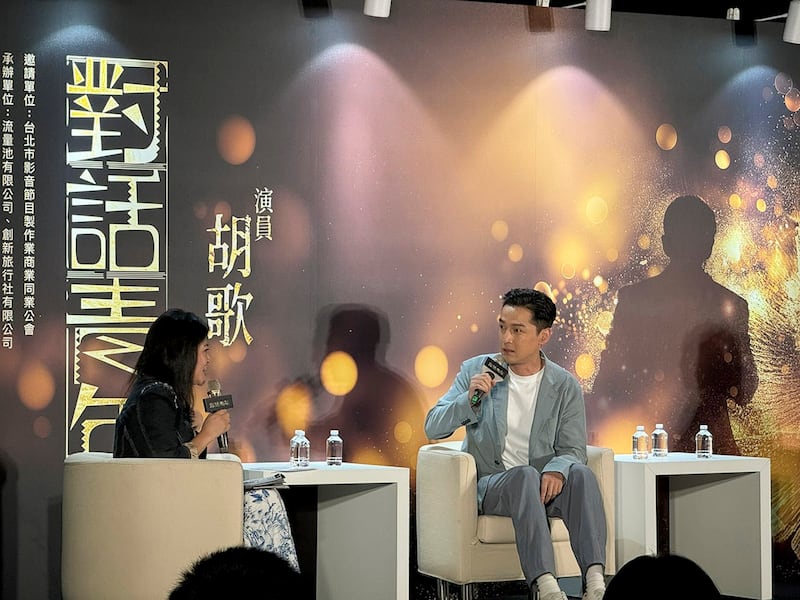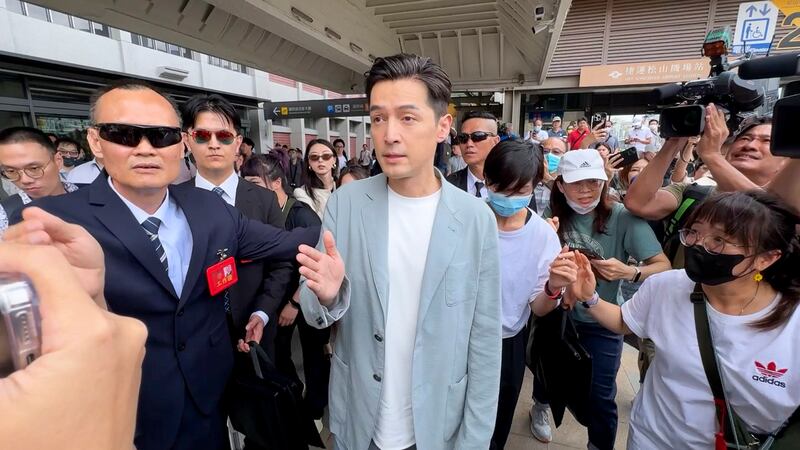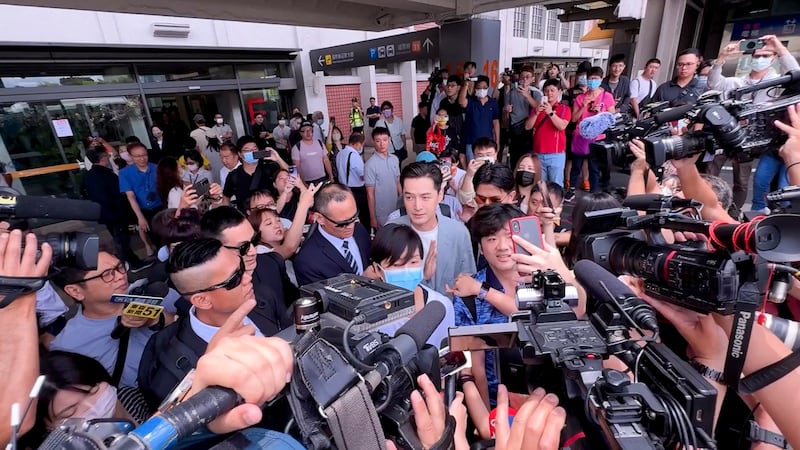Taiwanese media and fans rolled out the red carpet for a flying visit by Chinese movie star Hu Ge that some see as a bid to ease tensions in the region after the inauguration of President Lai Ching-te, Beijing's least favored candidate.
Hu flew into Taipei on Monday, accompanied by the head of the Taiwan Affairs Office in Shanghai's municipal government, indicating that a 2019 ban on movie stars traveling to the democratic island for the Golden Horse Awards may now be eased, despite ongoing military tensions in the Taiwan Strait.

Hu, a star of historical TV drama Chinese Paladin and the kung fu saga Heroes of the Condor Marshes, touched down at Taipei's Songshan Airport to be greeted by crowds of adoring fans and massed Taiwanese media.
"I miss you guys. You're so friendly!" he greeted them amid tight security and a strong police presence, before heading off to eat Taiwanese rice noodles, attend a youth dialogue event, and give media interviews.
"I don't care so much about the politics," a Hu Ge fan who gave only the surname Chiang told RFA Mandarin. "I just love what Hu Ge does, and the shows he's in."
Hu's visit comes after dozens of Taiwanese artists and actors publicly endorsed Beijing's territorial claim on the island by retweeting a Chinese state media post in support of eventual "unification."
New administration in Taipei
The tweet was a response to the inauguration speech of Taiwan's directly elected president Lai Ching-te, who called on Beijing to stop threatening his country, and respect the will of its 23 million people, the majority of whom have no wish to be ruled by the Chinese Communist Party.
Travel agent and trip organizer Li Qiyue told RFA that the trip was in line with the Chinese government's desire to "normalize person-to-person exchanges across the Taiwan Strait.
"The new administration has also adopted a more relaxed attitude since taking office," Li said. "I think this is a good sign."
Chen Binhua, spokesman for the China's Taiwan Affairs Office in Beijing, said he was "pleased" by the visit, adding that Hu's fan-base in Taiwan showed that they shared "culture and roots" with people in China.

"The Chinese cultural 'genes' that flow in the blood of the Taiwan compatriots cannot be changed by the DPP authorities, despite their de-Sinicization policy or disruption of cross-Strait exchanges," Chen said in comments reported by the state-run China Daily newspaper.
He hit out at Taiwan's ruling Democratic Progressive Party for refusing to lift a ban on package tours to China.
Taiwan's Mainland Affairs Council said Chinese entertainers are welcome to visit Taiwan to "foster mutual understanding through film and TV shows."
Flexible industry
Taiwanese film scholar Chi Lung-jen said Hu last visited Taiwan in 2018, where he was a guest presenter at the island's annual Golden Horse Awards, where Taiwanese director Fu Yu used an award acceptance speech to call for formal independence for the island, which is still officially governed by the 1911 Republic of China founded by Sun Yat-sen, prompting the Chinese boycott.
Chi said both sides were using the relative flexibility of the film and TV industry to warm up ties, noting that Hu had traveled from Shanghai, not Beijing.
"Shanghai is more commercial and international, so the fact that he flew in from there carries a different message," he said.

"China wants to see if it can change the Taiwanese people's attitude, and make them more friendly to China, using the popularity of movie stars and celebrities," Chi said.
Chang Wu-yueh, associate professor at the Institute of Chinese Studies at Taiwan's Tamkang University, said the visit had sent "a positive message" ahead of a cultural exchange event called the Cross-Strait Forum that opens on Sunday.
"There may be no political dialogue across the Taiwan Strait, but it's clear that both sides are keen to promote exchanges," Chang said. "Even if we can't go back to pre-pandemic [levels of detente], we can at least look forward to a more positive outlook than we had from 2020-2024."
Translated by Luisetta Mudie.
